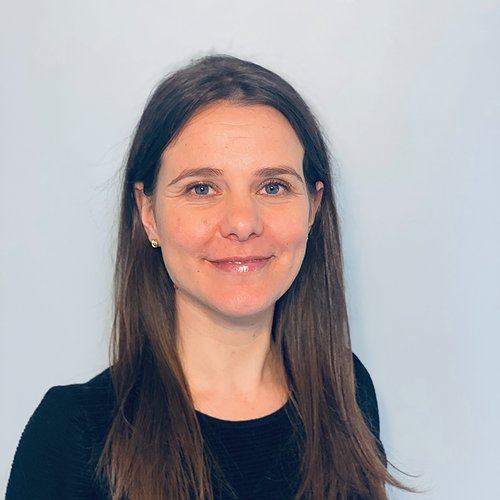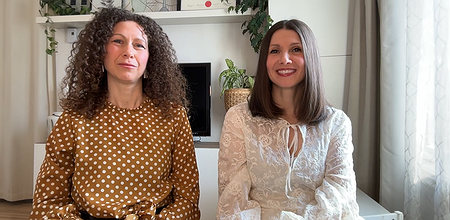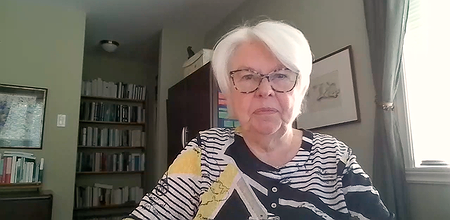- Conduct a thorough assessment for OCD and co-morbid conditions
- Formulate a CBT case conceptualization for OCD and develop an individualized treatment plan
- Implement each advanced CBT treatment component for OCD
CBT for Obsessive Compulsive Disorder: A Clinician's Guide
Dre Deborah Schwartzman, Psychologist
Practical guide to effective Obsessive-Compulsive Disorder treatment
Excerpt:
- 3h of continuing education
- 25 lessons that last from 5 to 15 minutes each
- 1 certificate of achievement
- 1 PowerPoint
- 1 bibliography
- 1 course evaluation
- 7-day money back guarantee
- Unlimited access
- 97% of participants who completed the satisfaction survey declare they would recommend this course to a colleague
Overview
Cognitive-Behavioural Therapy (CBT) with Exposure and Response Prevention (ERP) is a well-established, evidence-based treatment approach that can significantly improve OCD symptoms within a few months, transforming a chronic condition with poor long-term outcomes into one with significantly better and lasting improvements.
It is highly effective in alleviating the profound impact that OCD can have on functioning and quality of life.
This workshop is designed to equip participants with the skills to assess, conceptualize, and plan an individualized treatment for clients presenting with OCD. Participants will learn a variety of CBT interventions designed to help clients :
- reduce intrusive obsessions;
- prevent compulsive behaviors;
- identify and modify unhelpful beliefs;
- decrease avoidance;
- manage distressing emotions and physical sensations.
This workshop will go over how to deliver each treatment component, from the initial assessment to the implementation of strategies for relapse prevention and termination. By the end of this training, you will have the necessary tools to reduce the impact that OCD has on your clients’ lives.
Accreditation
Collège des médecins du Québec
For physicians who practice psychotherapy, training recognized by the Ordre des psychologues du Québec is automatically considered as activities adopted by the Collège des médecins, in accordance with Article 3 of the Regulation.
For physicians who do not practice psychotherapy, the College evaluates each recognition request based on the following criteria:
- the relevance of the activity to the practice of the profession
- the skills and experience of the trainer
- the quality of the content and its adequacy with the physician's practice
- the pedagogical framework of the activity
- the quality of the documentation provided
- compliance with the training objectives set out in the regulation
- the presence of a certificate of participation or an evaluation
About the expert

Dr. Deborah Schwartzman, psychologist, is an experienced psychologist who provides clinical services to a wide variety of clients and patients. She however specializes in providing support and treatment for individuals struggling with post-traumatic stress disorder, anxiety disorders, and mood disorders.
She has extensive research and clinical experience in Cognitive Behavioural Therapy (CBT), a well-established and evidence-based approach. In addition to her clinical work, Dr. Schwartzman provides clinical training and supervision to graduate students and interns as well as mental health professionals.
Learning objectives
Learning material
A theoretical course illustrated with clinical examples. This course is composed of videos of 5 to 15 minutes each. The PowerPoint of the course to download.
Syllabus
- PowerPoint
- 1. Introduction
-
Introduction to OCD
- 2. What Are Obsessions
- 3. What Are Compulsions
- 4. What is Obsessive-Compulsive Disorder
- 5. Prevalence and Vulnerability Factors
- 6. Treatment
- 7. OCD-Related Disorders
-
Assessment and Risk Evaluation
- 8. Differential Diagnoses
- 9. Assessment Instruments
- 10. Risk to Self, and to Others
- 11. Family Accommodation
-
Cognitive Behavioral Techniques in OCD
- 12. CBT Model for OCD
- 13. CBT for OCD
- 14. Providing Psychoeducation about CBT Treatment
-
Addressing Cognitive Distortions
- 15. Identify Distortions
- 16. Interventions to Challenge the Distortions
- 17. Some Strategies for Common Distortions
-
Exposure Therapy Methods
- 18. Exposure and Response Prevention
- 19. Imaginal Exposure
- 20. In-Vivo Exposure
- 21. In-Vivo Exposure Examples
-
Additional Treatment Components and Case review
- 22. Treatment Interfering Conditions and Family Participation
- 23. Accommodation Behaviors, and End of Treatment
- 24. Finale Case Example
- 25. Conclusion
- Bibliography
CE Credits
Download a certificate of successful completion.
Audience
This course is intended for mental health professionals.
Your comments
"Amazing and useful content. Communication of content was very clear."
A psychotherapist (Canada)
"This course was one of the best online training i have done due to the easy lay out and how each topic was broke down to smaller videos. The information was easy to understand and the notes were helpful.
Thank you"
A psychotherapist (Ireland)
Registration
Ask a question
Do you have a question? Then email us at contact@asadis.net
Frequently asked questions
-
Is there an evaluation at the end of the course?
To validate the achievement of the learning objectives, a final evaluation in the form of true/false questions is required. It must be completed in order to obtain the certificate of completion.
In addition, an optional self-assessment is offered at the beginning and end of the course, allowing you to measure your progress on the targeted skills.
These evaluations are not graded and are intended primarily to support your professional reflection.
-
I have a disability. Can I receive specific support?
Yes! This training is offered as a pre-recorded video format, without subtitles. If you have a disability, we can provide an adapted alternative (technical assistance for viewing or individual supervision). For any request, please contact our disability coordinator at the following address: contact@asadis.net
-
How long do I have access to the course?
After your registration, the course is accessible anytime and from anywhere with unlimited access.
-
When does the course start?
That is entirely up to you! When you buy a course, you'll receive an access link that you can activate when you want.
-
Is there a student rate?
Yes there is! To learn more, email us at contact@asadis.net.
You may also be interested in:
Legal notice
The courses offered by ASADIS are accredited by different professional organisations. In addition, ASADIS is approved by the Canadian Psychological Association to offer continuing education for psychologists. ASADIS maintains responsibility for the program.
The CPA’s approval of an individual, group, or organization as a CE Sponsor or Provider is restricted to the activities described in the approved application or annual report form. The CPA’s approval does not extend to any other CE activity the Sponsor or Provider might offer. In granting its approval, the CPA assumes no legal or financial obligations to Sponsors, Providers, or to those individuals who might participate in a Sponsor or Provider’s CE activities or programs. Further, responsibility for the content, provision, and delivery of any CE activity approved by the CPA remains that of the CE Sponsor or Provider. The CPA disclaims all legal liability associated with the content, provision, and delivery of the approved CE activity.





